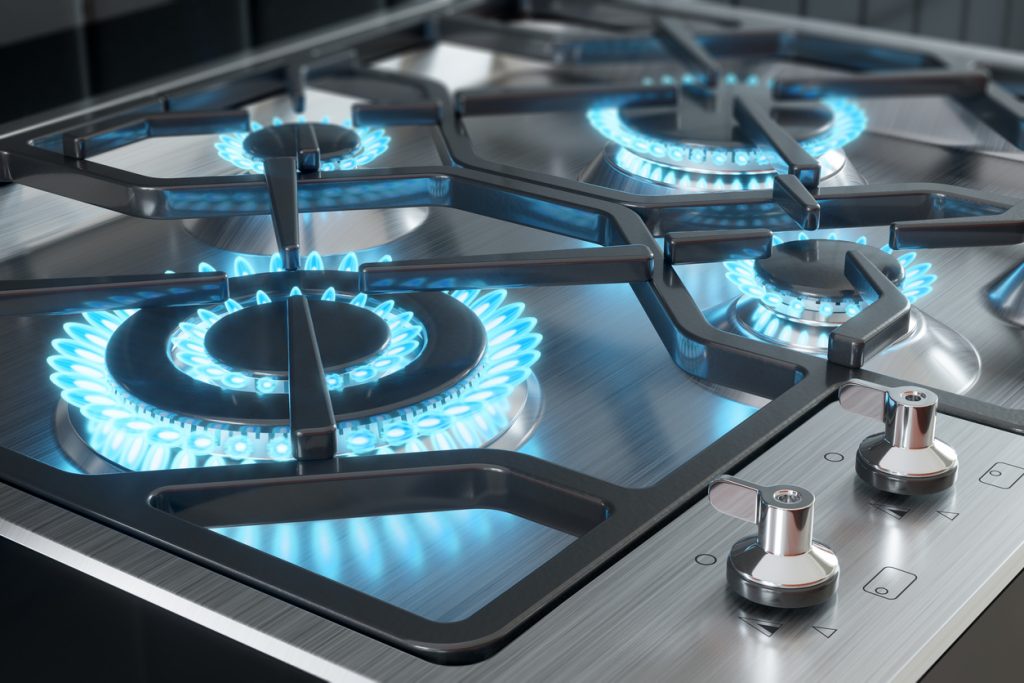When you think of your home’s energy consumption, you probably think of electricity first. But for many Portland homes, natural gas is also part of the picture. The Home Energy Score program takes natural gas usage into account when assigning efficiency ratings to homes, so here’s what you need to know about this energy resource.
What is Natural Gas?
Natural gas is a hydrocarbon gas mixture (mostly methane) that occurs naturally in the ground. It is sometimes known as “Fossil Gas” because it comes directly from ancient plant matter that was compressed and exposed to intense heat underground over long periods of time.
Though its name may make it sound innocuous, natural gas is a fossil fuel. Like coal or gasoline, it emits greenhouses gasses that contribute to climate change, both when it is mined out of the earth and when it is burned in power plants and in homes. For that reason, how much natural gas a home uses is important to Portland Home Energy Assessors when they generate the Score.
How natural gas is used in Portland homes
According to the Portland Business Journal, nearly 60% of Oregon homes are heated with natural gas. That gas goes straight to furnaces, where it heats air that is then blown into the home via HVAC ducts.
Other popular uses of natural gas include gas stoves and ovens, hot water heaters and fireplaces. Natural gas-burning clothes dryers and air conditioning units are also available, but less common in Portland.
Is natural gas or electricity more efficient?
Natural gas is considered more efficient when it is burned in the home. That’s because it’s a form of “on-site power generation”, meaning none of the power is lost between the place where it is generated and the place where it is used. Solar panels are another common form of on-site power generation; in this case, they generate electricity.
However, most electricity used in homes is generated at power plants and then transmitted over power lines to consumers. Some estimates say that about 10% of electricity generated in the US is lost in transmission and distribution.
Natural gas furnaces and appliances also tend to heat faster than their electric equivalents, another reason that gas is more efficient in these applications.
Whether your home relies on electricity only, or is helped along by natural gas, is taken into account when your Home Energy Score assessor scores your home. However, the efficiency of the various appliances using natural gas is also taken into account, starting with the furnace.
What can I do to improve natural gas efficiency in my home before ordering a Home Energy Score?
- If replacing your natural gas furnace, look for a unit that has a high AFUE, or Annual Fuel Utilization Efficiency. That’s the percentage of energy going into the system that comes out as usable heat. The current minimum AFUE is 78% for new systems, but high-efficiency systems can get up to 98% fuel utilization.
- The furnace converts the energy of natural gas into hot air that is then moved through ducts, so be sure your entire HVAC system is well sealed and functioning properly to maximize efficiency.
- If replacing your natural gas hot water heater, look for its “Energy Factor” (EF). The higher the EF, the more efficient the water heater. Energy Star certified hot water heaters are recommended.

